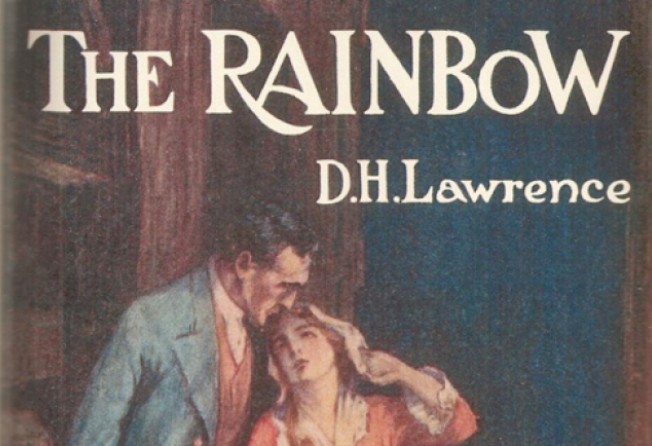
Why 'The Rainbow' by D.H. Lawrence was too sexy for its time, and banned and burned more than a decade before 'Lady Chatterley's Lover'
Long before 'Lady Chatterley's Lover' was deemed obscene for its sexual content, D.H. Lawrence's 'The Rainbow' was banned and copies of it were burned
This story' of three generations of a farming family, shocked with its steamy sex scenes and words considered too racy at the time, including 'belly'

The Rainbow
by D.H. Lawrence
Modern Library
D.H. Lawrence is perhaps best known for Lady Chatterley's Lover, published in 1928 and banned for the raunchy sex scenes between the aristocrat and the gamekeeper.

Sons and Lovers is considered a masterpiece today, but in 1913 it received a lukewarm response and there were murmurings of obscenity. Two years later came The Rainbow - there had never been anything like it and it shocked. Barely was it off the press than the novel was seized and all copies burned. It took 11 years before it was published in Britain.
Broadly speaking, The Rainbow tells how the Victorian age gave way to the modern era. It's about relationships between husbands and wives, children and parents, across three generations of the Brangwen family who worked the same Midlands farmland for generations.
Lawrence does away with traditional storytelling devices. The plot is loose, there is no single protagonist. Instead he creates a set of complex characters whose motives are sometimes muddled, who change their minds and are often flawed - just like real people.
But it wasn't ditching the narrative devices of the day that earned him the ban - that came from the steamy sex scenes and words that were considered obscene. Very few would blush reading The Rainbow today. Consider that one of the words deemed provocative was "belly".
Lawrence could write. The opening pages describing the harmony between man and the land, the rhythms of nature, are among the finest in English literature. Given his frank, sexually charged novels, it's easy to imagine that Lawrence's life was one long hedonistic orgy, but it was nothing of the sort. He lived a hard life, filled with poverty, sickness and rejection, and died young, aged 44.
The charges of obscenity and bans on his books have long since been lifted, but his reputation is still coloured by those claims. Often it's that distorted image of the man that readers think of when they pick up The Rainbow. But today those saucy scenes seem no more pornographic than a soap commercial on TV. It's the sensitivity of the language and his generosity of spirit that prevail.
Kate Whitehead